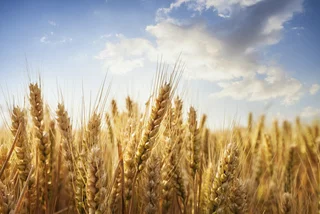According to the Czech State Agricultural and Food Inspection Service (SZPI), so far this year, every fourth food item imported into Czechia has failed inspections. The highest number of breaches came from southeast Asia.
The SZPI confirmed that, in the first half of 2023, it carried out 25,000 checks and took 9,000 food samples. Of these, 2,300 failed to meet the necessary standards. "An area that worries us is the problem of pesticide residues in fresh fruit and vegetables or herbs that are imported from Asia. This is a long-term problem," points out SZPI director Martin Klanica.
Klanica also said that the SZPI "manages to carry out 45,000 to 50,000 checks per year. Non-conforming samples fall into a wide range of errors, from food quality and labeling errors to food safety. However, samples that would directly threaten the health of consumers are an absolute minimum."
Possible issues with Ukrainian food
Earlier this year, the SZPI has also detected irregularities during inspections of food coming from Ukraine. For example, two batches with salmonella were detected in Ukraine-exported poultry meat.
Despite this, in April the Czech Ministry of Agriculture announced that Czechia would not ban the import of grain and meat from Ukraine. Then-Minister of Agriculture Zdeněk Nekula said that inspections by Czech food supervisory authorities did not reveal sufficient shortcomings or discrepancies in the quality of food imported from Ukraine.
New Agriculture Minister Marek Výborný noted this week that Czechia continues to carry out "strict checks," including on repackaged food that originated from Ukraine and thereafter transited through a different country.
Some farmers in Czechia continue to call for a ban – or heavier regulation – on Ukrainian food imports to ensure adequate food safety and also prevent the price of wheat and other related foodstuffs from becoming too low. In April, Poland, Hungary, and Slovakia banned grain imports from Ukraine.
Czech Agrarian Chamber spokesperson Barbora Pánková also called for tighter checks. "Regarding the import of food from Ukraine – its repackaging and further delivery to the European market – we would like to request increased supervision by the [food] control authorities in Czechia,” she said. The SZPI has said it is happy to oblige.













 Reading time: 2 minutes
Reading time: 2 minutes 




























